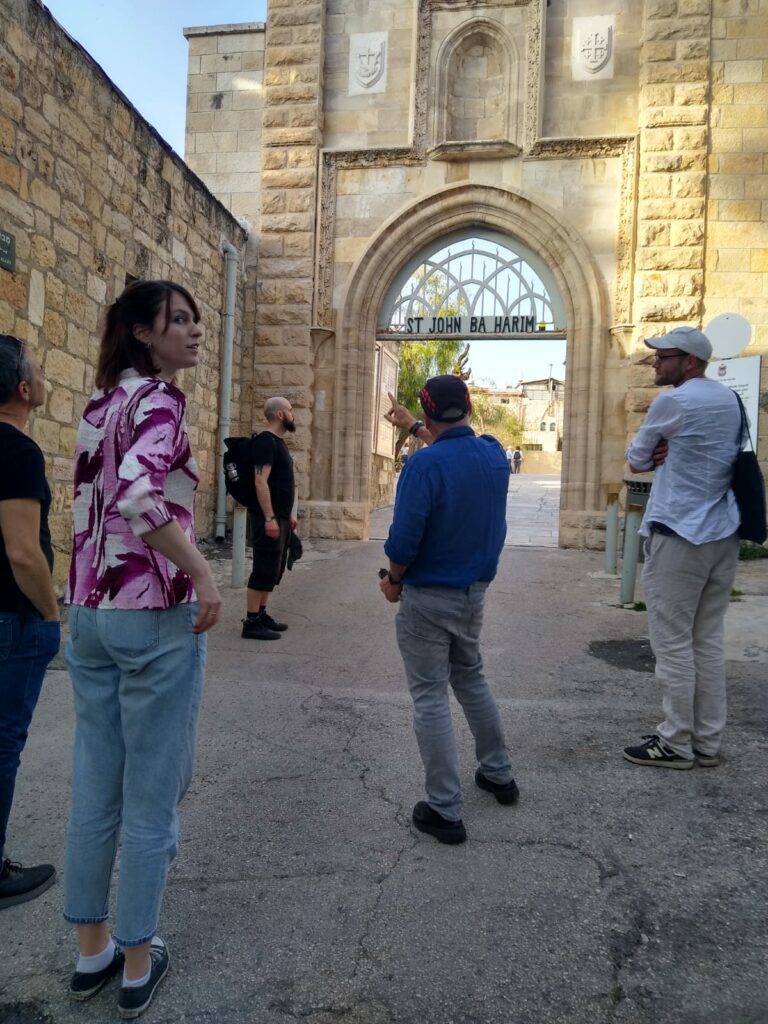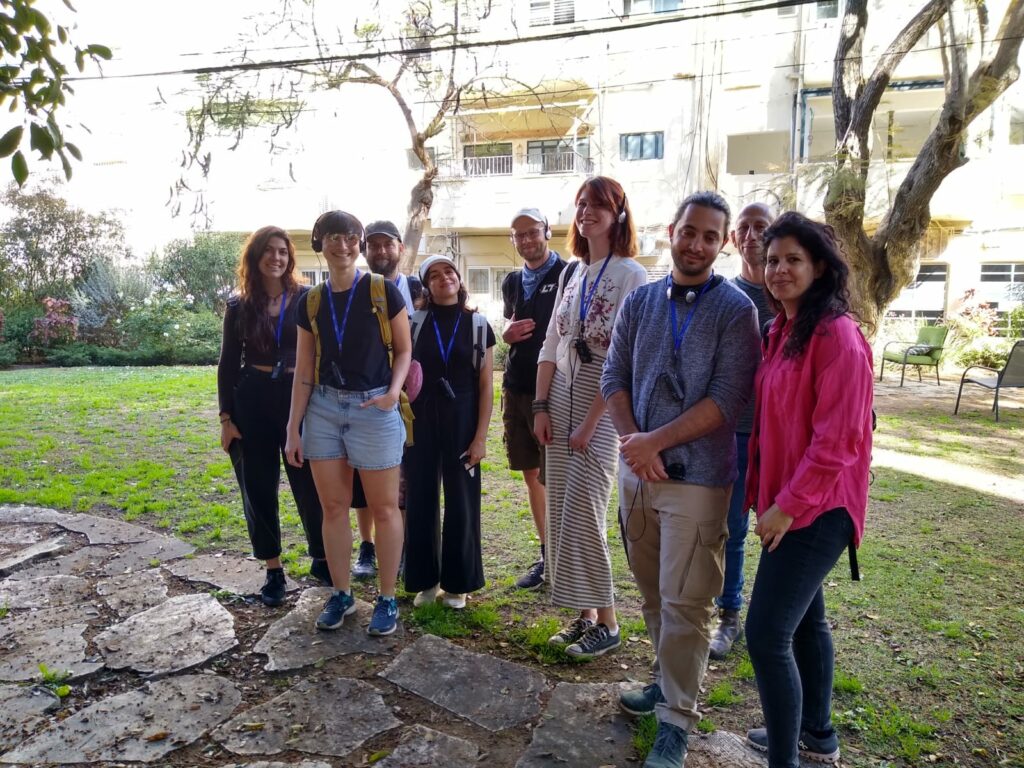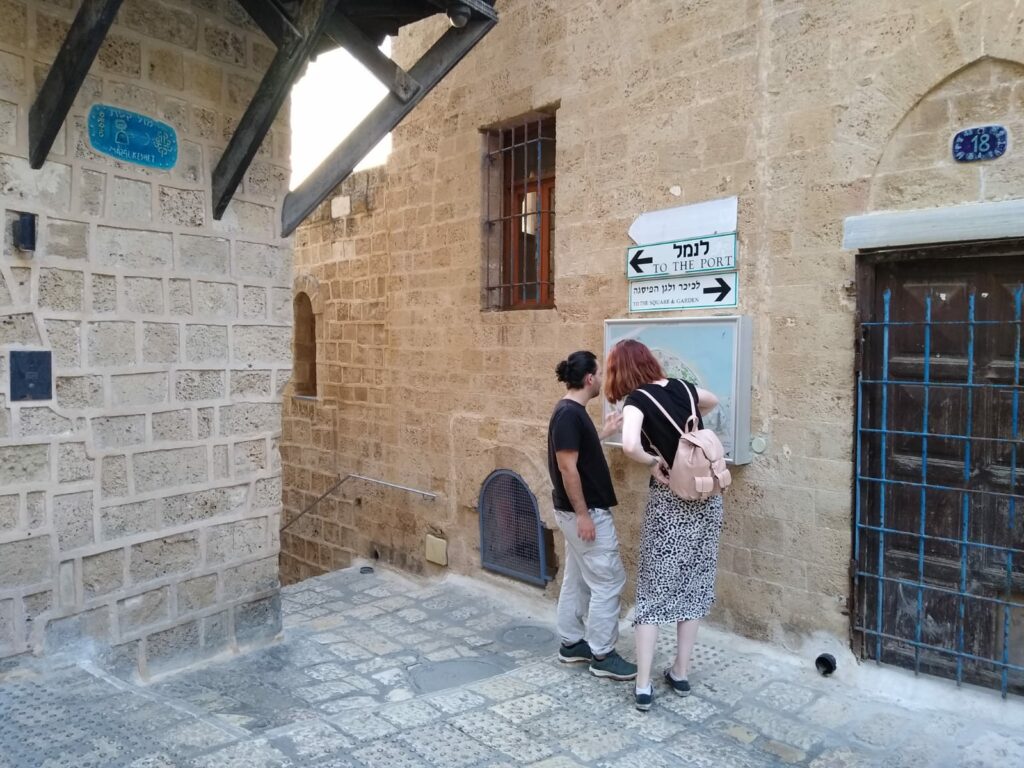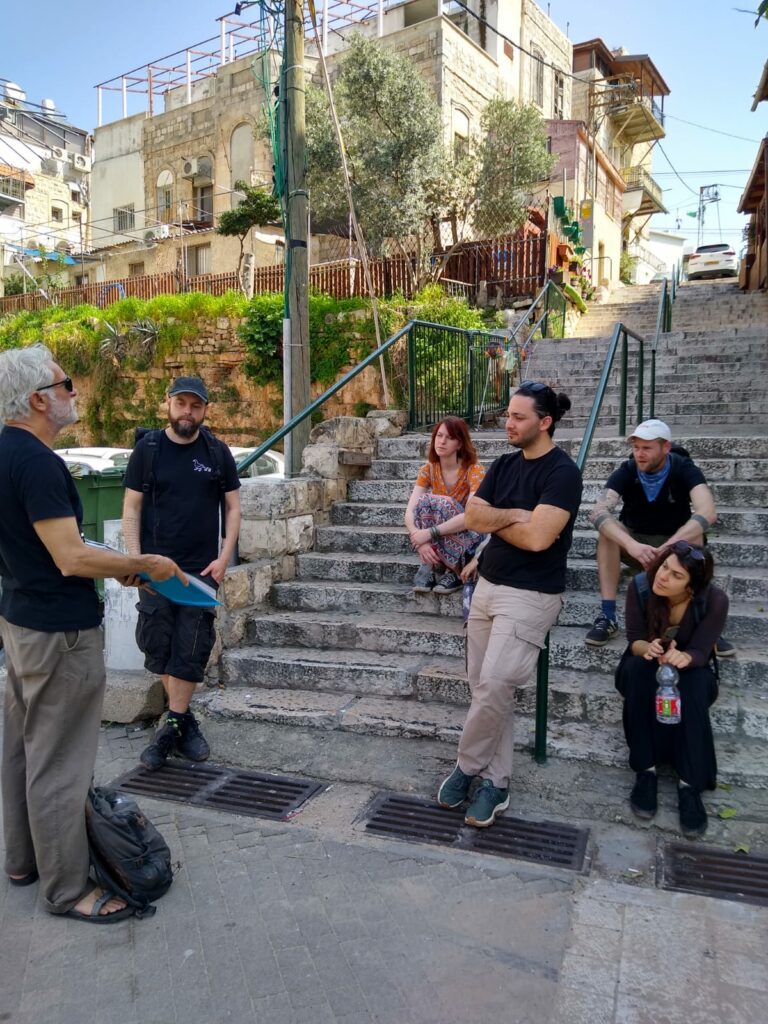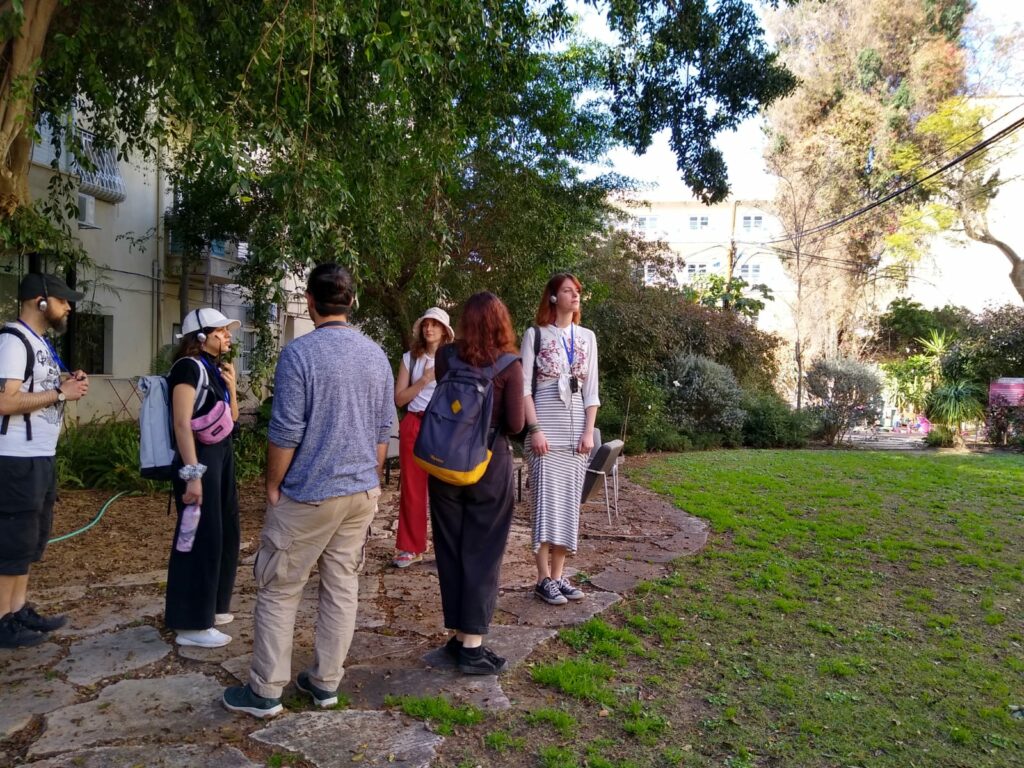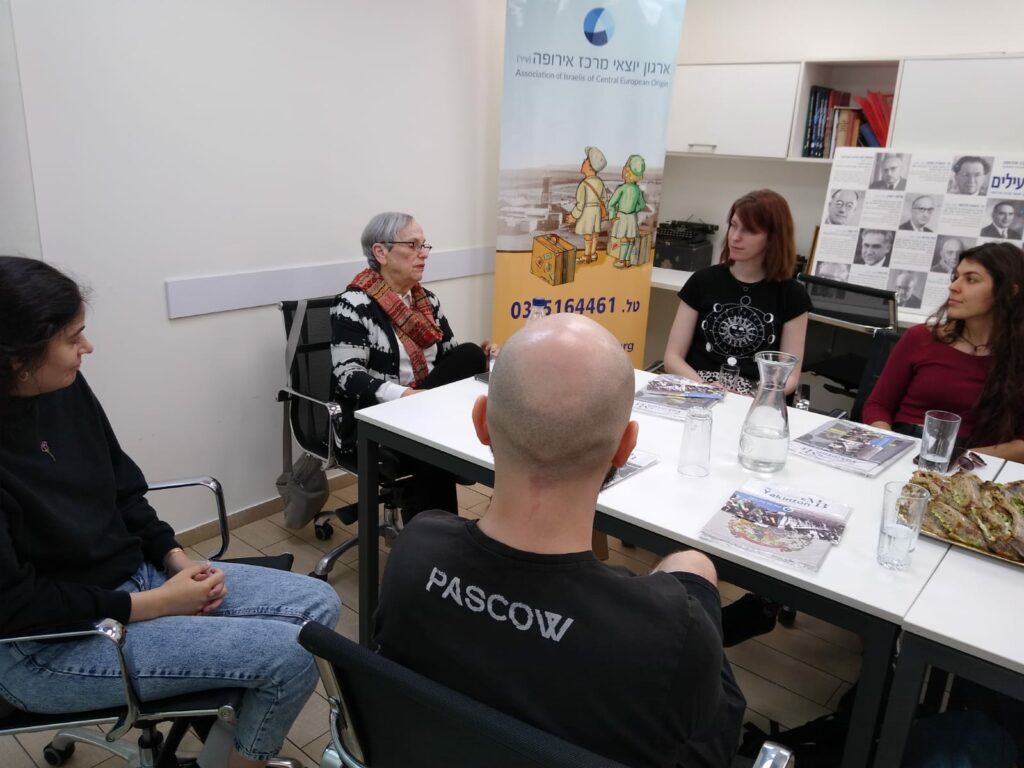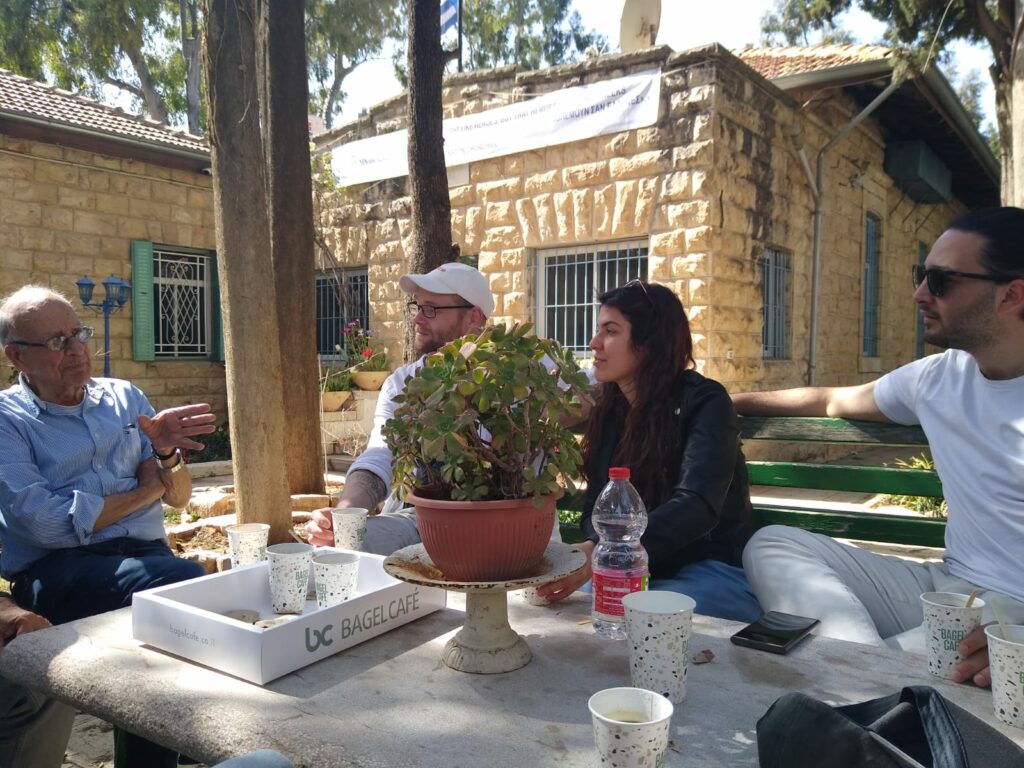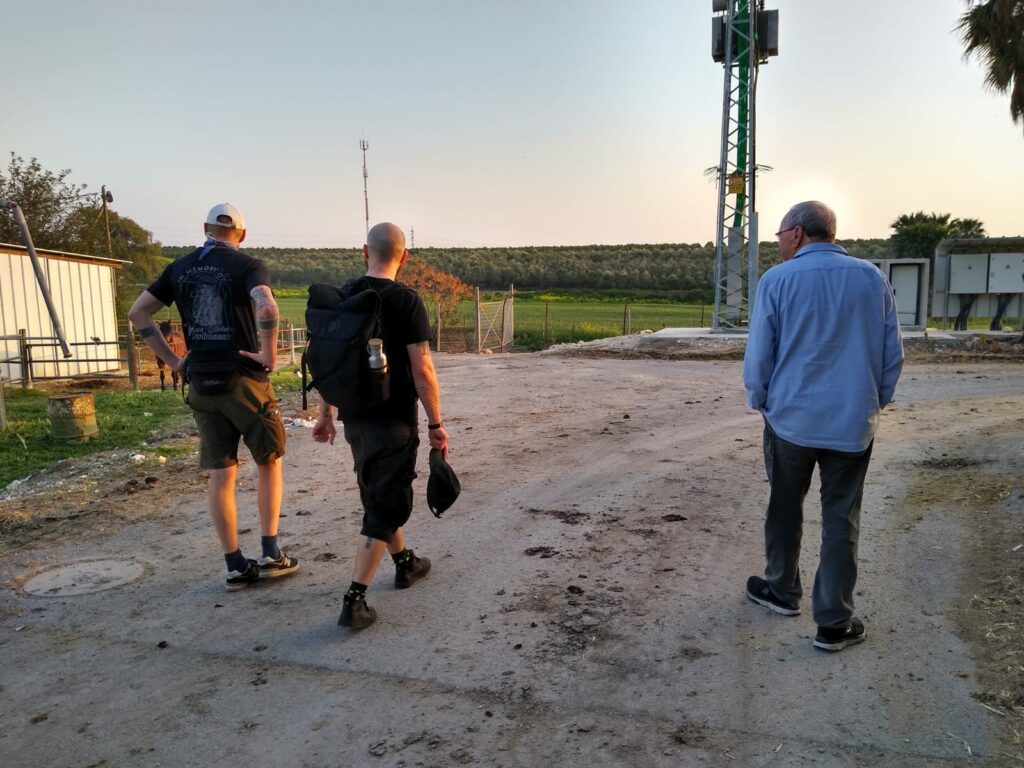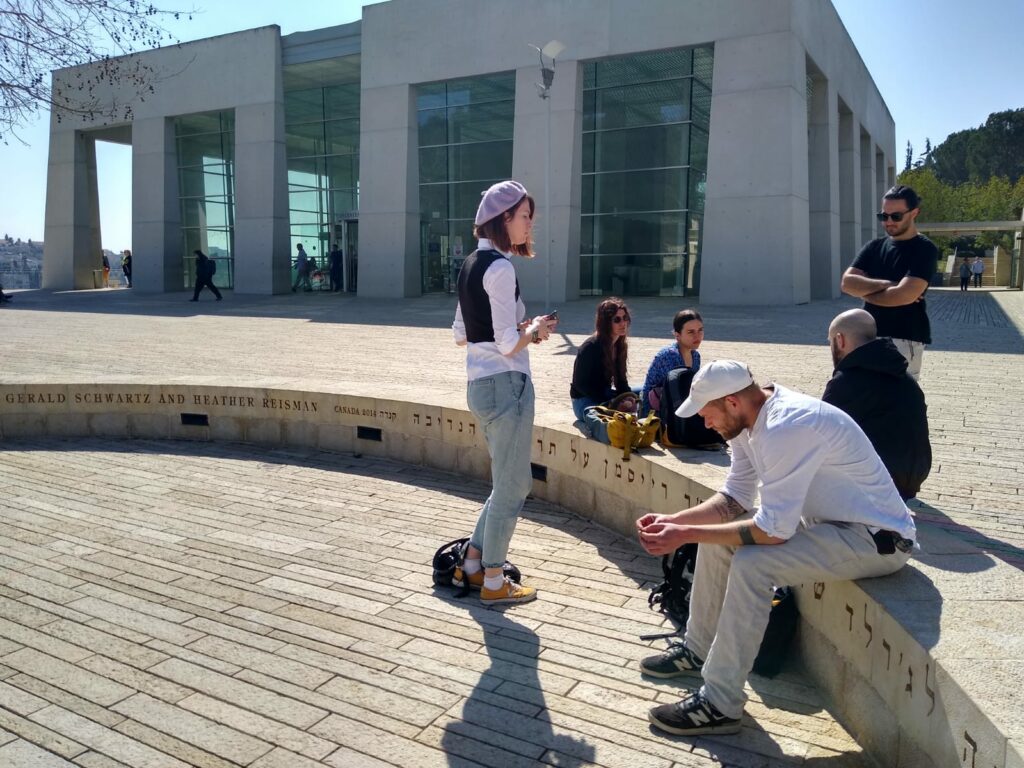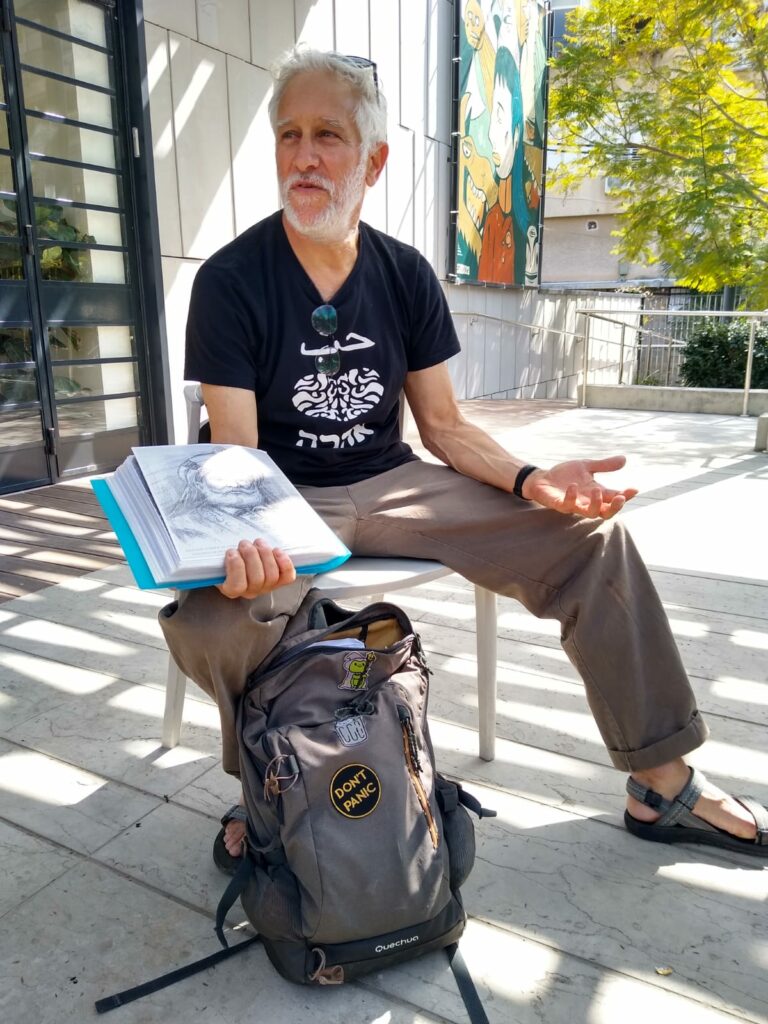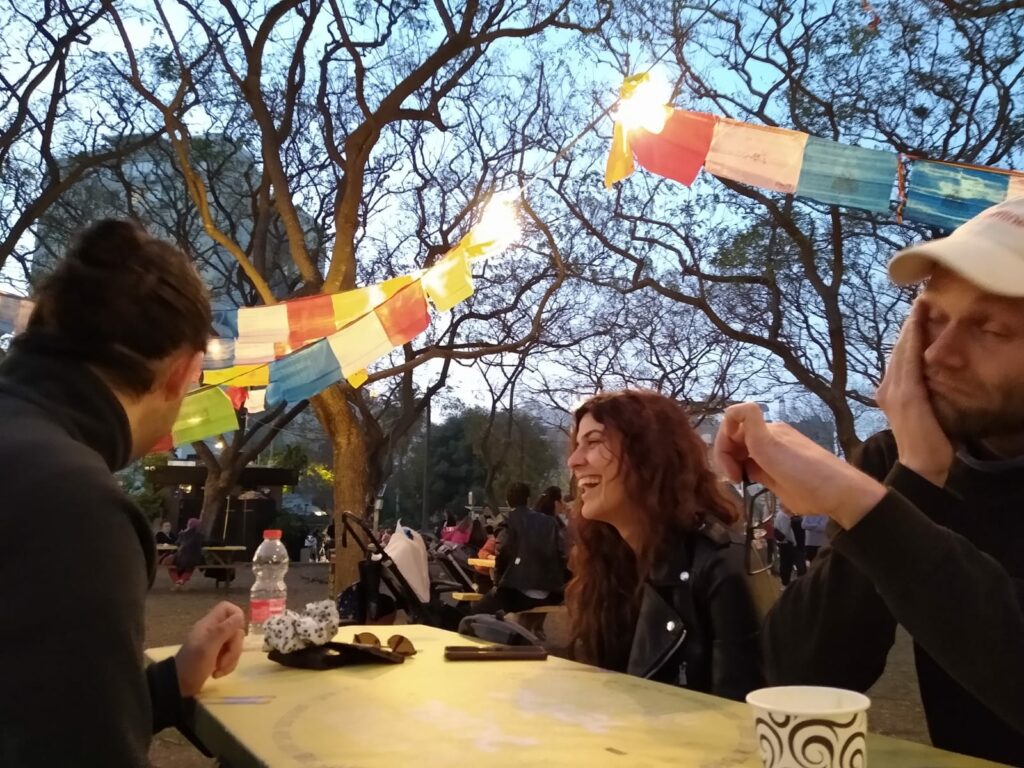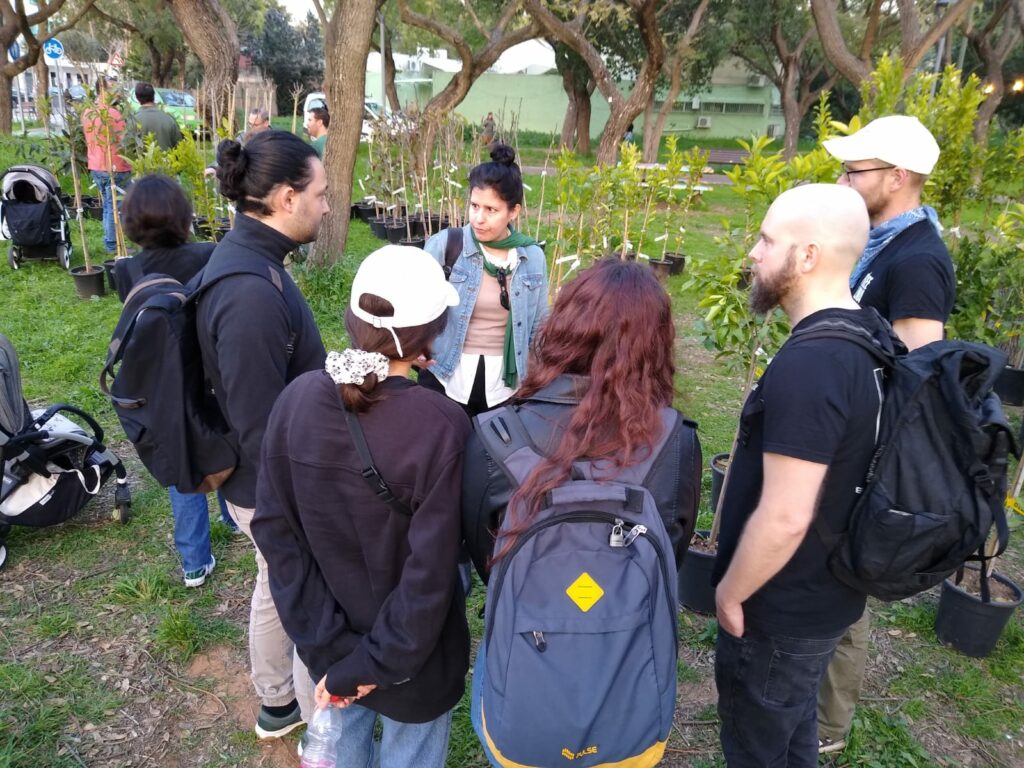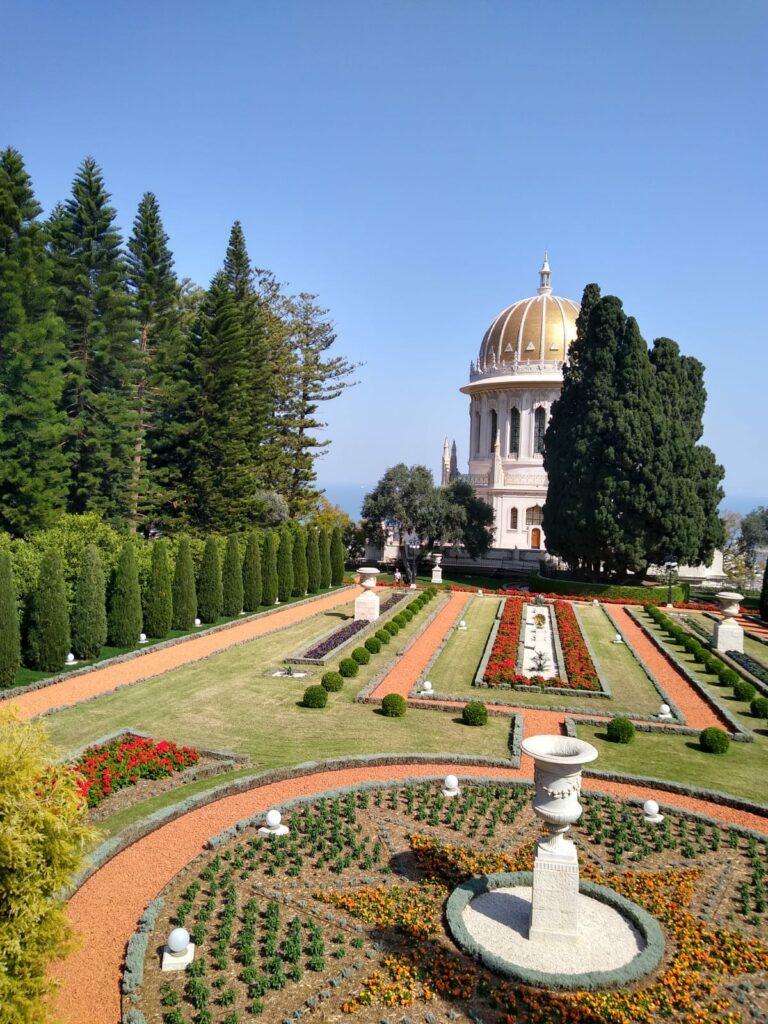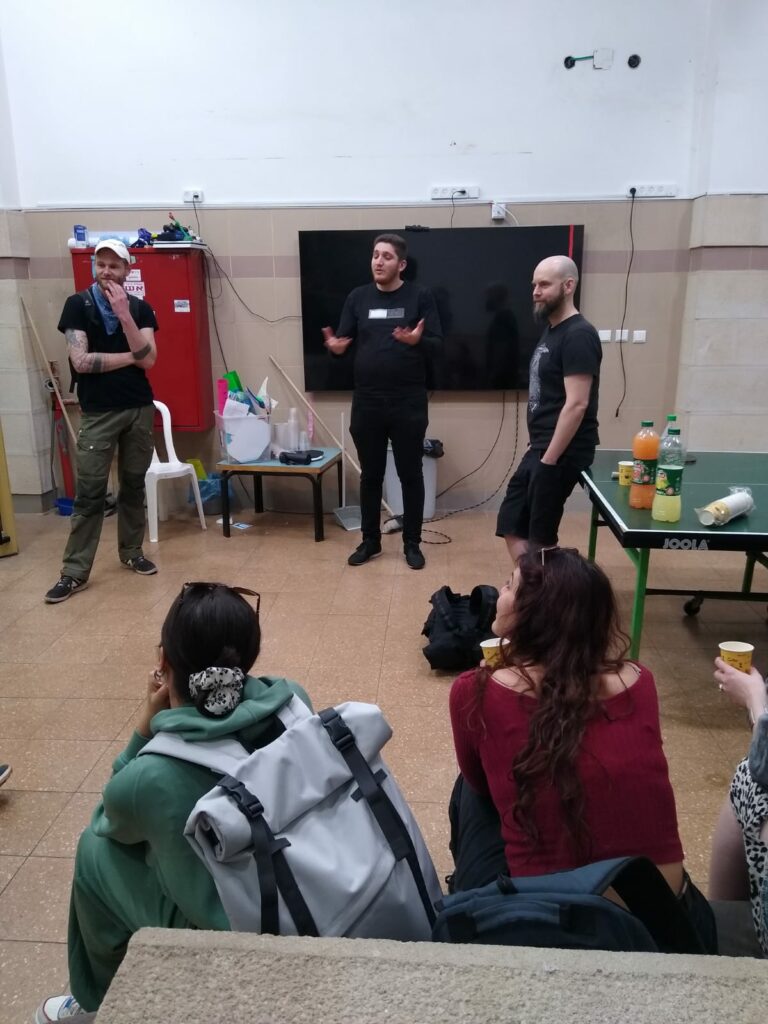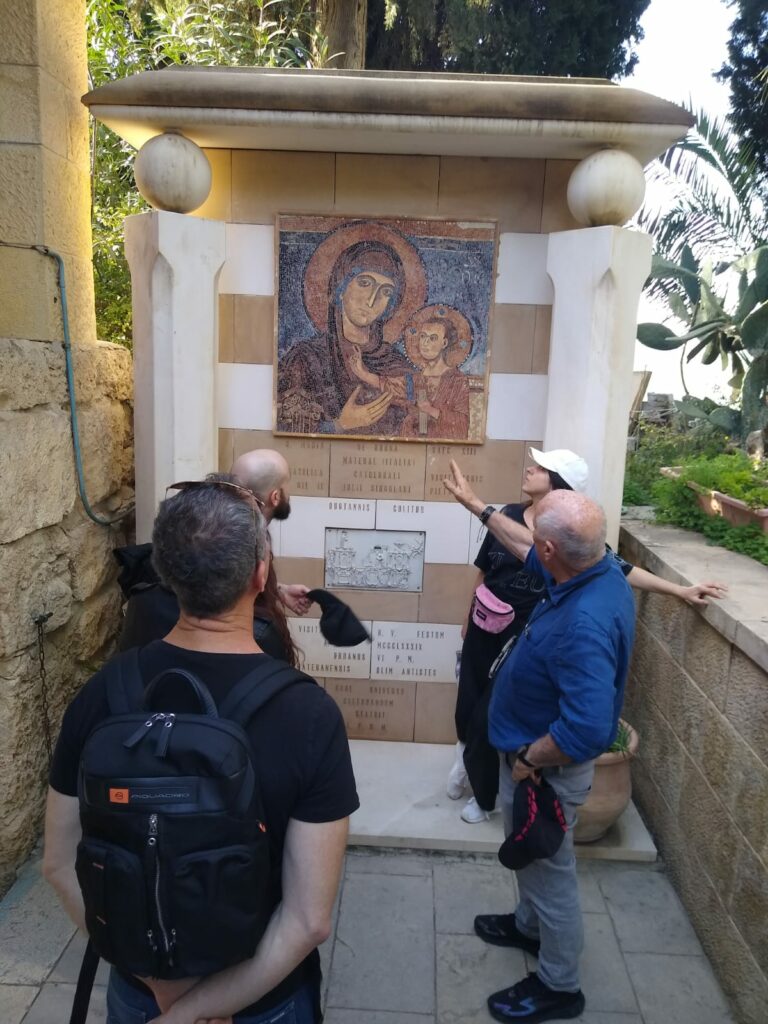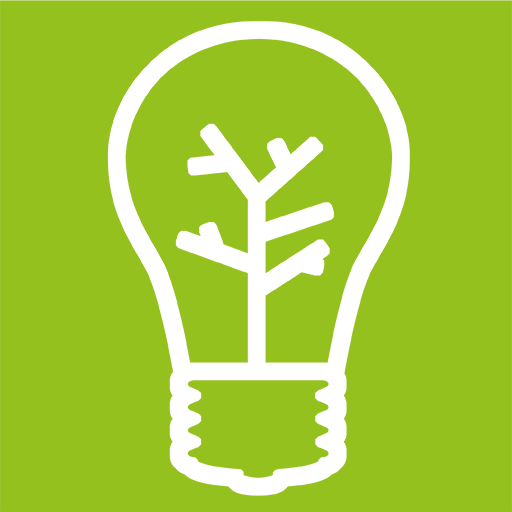Our project “Nature & Ideology” is going into the last round: This time, our experts from Greece and Germany went to Israel from 27 February to 5 March before the youth exchange at the end of March. During the first encounters (Berlin, Corfu), the focus was on confronting inhuman ideologies and how they gain a foothold in nature and environmental protection. In Israel, we continued to explore the diverse framing of gardens in social change and, above all, go in search of positive humanistic alternatives.
There was input on this directly on the day of arrival when we visited the opening of a community garden of the Tel Aviv Municipality. The next day was our big networking day. At noon we went to the Irgun Jeckes (The Association of Israelis of Central European Origin), who invited us into their office and told us about their work. After a tour through the streets of the old city of Jaffa, we met with our partners from the Arab Jewish Community Center.
The next day, with Lior from the organisation “Mabat – Awareness in a Multicultural Society”, we explored the gardens of the Bahá`i in Haifa, a universal religion that calls for the earth to be seen as “only one country and all people [as] its citizens”. Over lunch, we spoke with Lior about the work of his organisation and future possibilities for cooperation. We spent the afternoon at Kibbutz Gal’ed. Kibbu-what? A kibbutz is a settlement in Israel built on a socialist and solidarity basis. Yotam, a resident of the kibbutz, told us about the history of its creation and about life in this collective settlement.
What, already day 4 of the exchange of professionals? The time flew by. Thursday on the programme: an excursion to Jerusalem to the Greek community and the pilgrimage site Ein Kerem. According to Christian tradition, this is where John the Baptist was born.
The following day, we went to Jerusalem again, to the International Holocaust Memorial Yad Vashem – a very impressive experience. The silence, but also the exchange in the group afterwards did everyone good to process and sort out what they had seen, told and perceived.
We spent Saturday in Tel Aviv, visited the Lieblinghaus and the White City, a Bauhaus-style district, and learned a lot about the original architecture of the Israeli capital.
We took it easy on the day of departure. After the Greek part of the group had to go to the airport early in the morning, the German participants spent the afternoon at the Carmel market to organise a few souvenirs. It was a pity that the seven days were over so quickly. We would have loved to spend some more time with our old and new friends from Greece and Israel.
